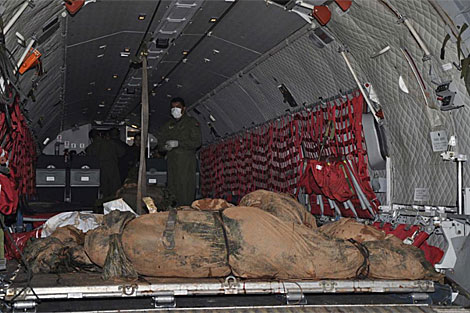“It’s impossible to maintain any longer our current security plan–one that was effective years ago when there were very few oil companies and fields to care for,” the minister said Tuesday. “There are now 130 oil companies out there.”
Very interesting news in Colombia. Lately there has been a spike in energy sector attacks by ELN and FARC. They are successful because they have reduced the size of their attack forces, which then helps them to attack more targets and thin out the government forces assigned to stop them. The ‘few and the many’ from the new rules of war comes to mind. Also, it is very easy for this few and many force to go on the offensive and cause damage. Just look at what MEND was able to accomplish in Nigeria?
“Before there were movements that were more massive,” Gutierrez said. “Now clearly it’s more individuals and cells, which is a different presence from what it used to be.”
Now combine these tactics with a highly dispersed government force trying to cover down on 130 oil companies and all of their infrastructure/people, and you can see why the defense minister would want the oil companies to pay for their own security. To help the government out because there are just too many people and things to protect against such a dispersed force.
Another thing I wanted to mention is that these oil companies need to realize that Colombians are paying for their protection, as they make oodles of money selling that stuff all over the world. That world market for oil will increase if Iran is attacked or nations fall to revolution.
So to me, this is a classic case where the oil industry will fight to keep getting their good deal and ‘free government security’. I say make them pay for their own security so the government’s police and military can focus on serving the people and not just serving oil companies. Just a thought.
Also, these attacks coincide with another big development. Colombia is auctioning off 109 oil blocks to international oil companies. The value of those blocks depend upon how secure they are. Who wants to buy an oil block that is in a dangerous area, which would then equate to more risk and more cost? So security of these sites is crucial to Colombia in order to get more action and attention in these auctions. The FARC and the ELN know this, hence why they are increasing attacks.
But back to private security. Colombia should continue to press the issue of getting PSC’s back in the game there. The companies should be investing in their own security. I compare it to these shipping companies that want the government to pay for all of their security in pirate infested waters, or depending on government to save the day. Hopefully Colombia’s defense minister can press the issue. –Matt
Oil companies in Colombia say security is government’s job
Wednesday, 10 August 2011
Dan Molinski
The head of an association of multinational oil companies operating in Colombia said Wednesday it’s the government’s job, and not that of the companies themselves, to provide security to oil workers and infrastructure against rebel attacks.
“We as a sector understand very clearly that security will be provided exclusively by the state,” Alejandro Martinez, president of the Colombian Oil Association, told Caracol Radio.
Martinez’s comments come one day after Defense Minister Rodrigo Rivera said the sharp growth in Colombia’s oil sector has made it impossible for military and police to adequately protect all oil installations, many of which are located in remote regions near guerrilla strongholds.
The defense minister said oil companies need their own private security forces to help government troops combat a wave of attacks and kidnappings by Marxist rebels that has threatened to derail the oil industry’s four-year growth spurt.


